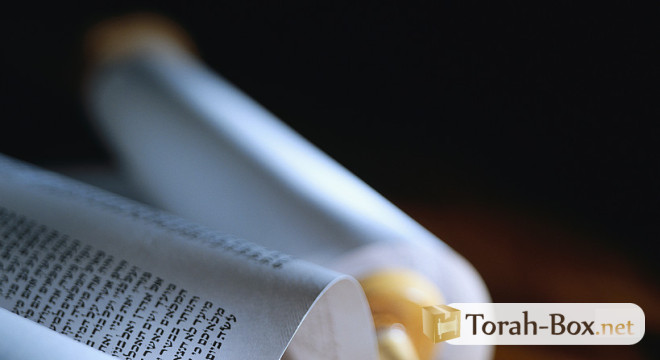
Torah Learning
The Haftara: Who? When? How?
Antiochus, the Greek emperor, forbade Jews from reading the Torah on Shabbat, so our Sages instituted reading a chapter of the Book of the Prophets instead, to ensure the Torah would not be forgotten. Ever since, the reading of the Haftarah (the accompanying reading from the prophets), was perpetuated, even after the victory of the Chashmonaim over the Greeks.
After reading the weekly Parsha at the synagogue, the "Maftir" stands in front of the Sefer Torah to read the last verses of the Parsha. "Maftir" means to complete or finish.
At the end of this reading, the Sefer Torah is closed. The Maftir then proceeds to read a chapter from the Book of the Prophets. This is the Haftarah.
The Maftir pronounces a blessing before the reading. This blessing mentions the importance of reading the Book of the Prophets: "You are a source of blessings, O Lord our God, King of the Universe, who has chosen good prophets and has approved their words as truth ".
After the reading, he recites another four blessings related to Shabbat.
As mentioned above, the reading of the Haftarah is a custom that goes back to the time of the Chashmonaim, following Antiochus’ decree forbidding the reading of the Parsha on Shabbat. To ensure that the custom of reading the Torah never disappear, our Sages instituted the reading of part of the Book of Prophets. This custom prevailed even after the victory over the Greeks. According to some opinions, the decision to read the Haftarah was presented by Ezra Hasofer (the scribe) at the time of the beginning of the second Temple.
The selection of sections read on Shabbat usually corresponds to the theme of the Parsha. For example, on the week of Parashat Bereshit, we read the Haftarah related to the Creation of the World. On the week of Parashat Noah, we read the Haftarah which mentions Noah and the flood.
However, some Haftarot corresponds to specific periods in the Hebrew Calendar. For example, during the three-week mourning period related to the destruction of the Beit Hamikdash, falling between the 17th of Tammuz and the 9th of Av, three Haftarot describing the prophets’ words on punishment and reprimands are read. On the Sabbath preceding the Ninth of Av, we read the words of the Prophet Isaiah, beginning with "Chazon Yeshayahu, son of Amos". This is the Haftarah of Shabbat Chazon which accurately raises the faults of the people of Israel.
At the end of this mourning period and on Shabbat Nachamu, Haftarot containing words of consolation are read up to Rosh Hashanah.
The Shabbat between Rosh Chodesh Tishrei and Yom Kippur is Shabbat Shuvah. Even on the Shabbat preceding Pesach, called Shabbat Hagadol, we read a special Haftarah.
There are also Haftarot preceding Rosh Chodesh or pertaining to Shabbat Rosh Chodesh, which mention the particularity of that specific Shabbat.
Every festival and fast also has its own Haftarah. On festivals, one reads the Haftarah after reading the morning Torah. However, on fast days, the haftarah is read in the afternoon, during Mincha.
On Yom Kippur, we complete the reading of the Book of the Prophet Yona. This Haftarah deals with Teshuva, specifically the repentance of the citizens of Nineveh.
In some communities, one reads the Haftarah on a different scroll, containing the entire book of the Prophets.
The reading of the Haftarah is chanted differently than the specific cantillation used for the Parsha.
This reading is important and deserves the special honor. This is why it is usually attributed to a person who is celebrating a particularly joyful occasion.
Some communities follow the custom to add the following passage after the reading: "Deliver us, Hashem ...". Iraqi communities add: "House of Yaakov, let's go, let's walk in the light of Hashem". The Jews of Georgia add the verse: "Be strong and Hashem will strengthen the heart of those who hope in the Lord."
The reading of the Haftarah was instituted to strengthen the People’s faith in their Prophets and to honor the words of the latter just as the words of the Torah are honored. On this occasion, a second blessing is pronounced before the reading: "You are a source of blessings, Eternal who chose the Torah and Moses His servant, and Israel His people, and the prophets of truth and justice".
Torah-Box.net Account
To access the entire Torah-Box.net website, sign up for free in less than a minute.
Weekly Parsha
 Candle Lighting - New York
Candle Lighting - New York
Friday December 26th, 2025 at 16:16 *Shabbat ends at 17:22 *
change my location
* Times given as an indication, check the times of your community











